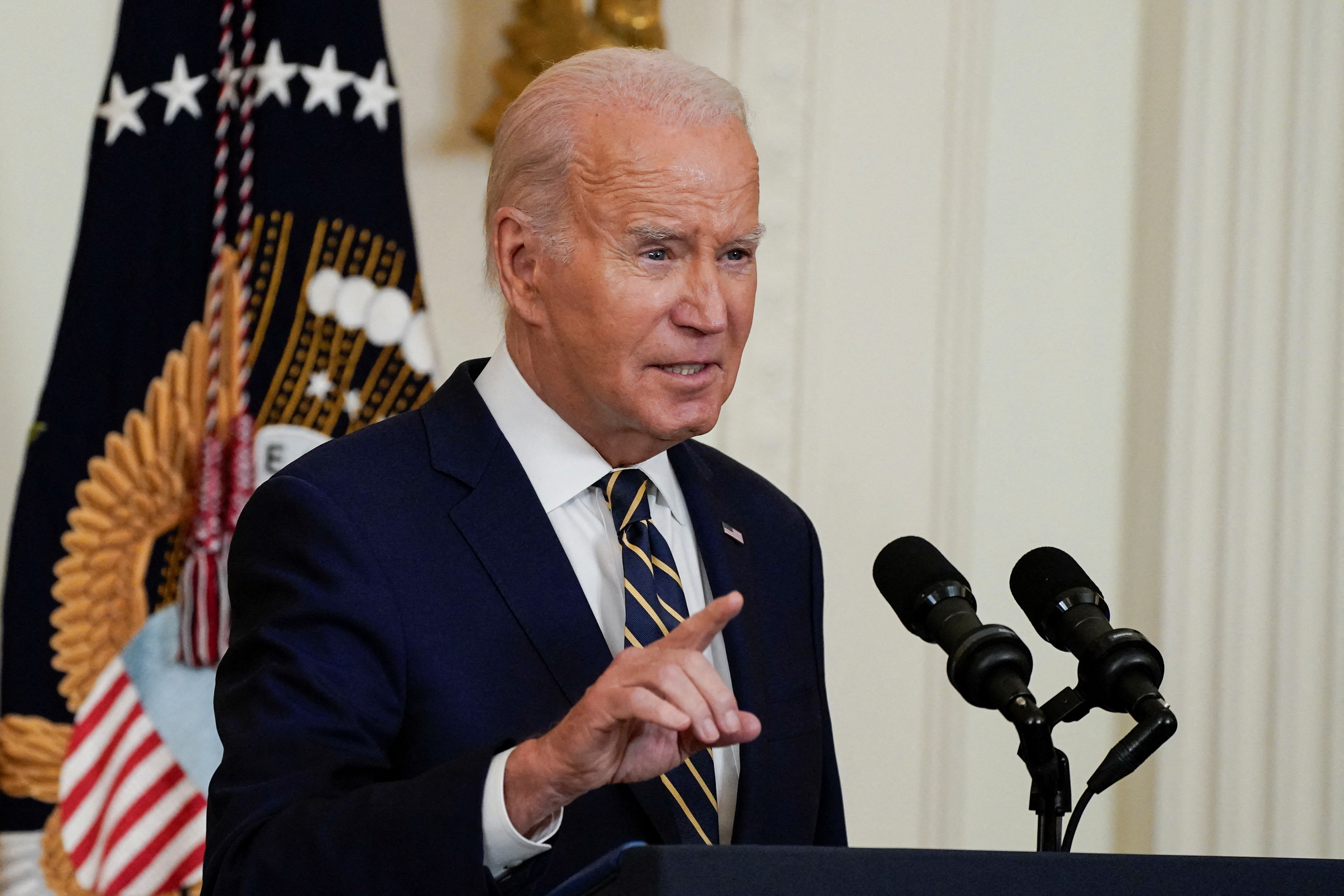
US President Joe Biden delivers remarks about access to mental health care in the East Room of the White House in Washington, US, July 25, 2023. REUTERS/Elisabeth Frantz/File Photo
NEW YORK/WASHINGTON (Reuters) – The White House on Wednesday will outline its plans to block some U.S. investments in sensitive technology in China and will require government notification of other investments, a senior government source told Reuters.
The plans are intended to prevent US capital and expertise from helping develop technologies that could support China’s military modernization and threaten US national security.
Reuters reported on Friday that President Joe Biden is expected soon to issue a long-awaited executive order to scrutinize outgoing investments in China’s sensitive technologies this week.
The senior government source said it was expected on Wednesday. The White House declined to comment on Tuesday.
Biden administration officials have stressed for months that any restrictions on US investment in China would be narrowly targeted.
“These are tailor-made measures,” National Security Adviser Jake Sullivan said in April. “They are, as Beijing says, not a ‘technological blockade’.”
US Commerce Secretary Gina Raimondo said in March that the administration does not “want to be overly loose… anything overly broad hurts American workers and the economy.”
The administration is expected to target active investment such as US private equity, venture capital and joint venture investments in China in semiconductors, quantum computing and artificial intelligence.
Sources said most of the investments seized under the order would require the government to be notified. Some transactions will be blocked.
The New York Times reported on Tuesday that the Biden administration plans to require companies that invest in a broader range of Chinese industries to report on such activity, giving the US government significant insight into financial transactions between the US and China.
Sources told Reuters earlier that the restricted semiconductor investments are expected to follow export control rules for China issued by the US Commerce Department in October.
Emily Benson of the Center for Strategic and International Studies (CSIS), a bipartisan policy think tank, said she expects investments in artificial intelligence to be banned for users and military uses, and that other investments in the sector would only require government notification.
Benson said the onus is on the administration to determine what falls into the military category.
“They will have to draw a line as to what constitutes a military application of AI, and define AI,” said Benson, director of the CSIS Project on Trade and Technology.
Biden’s order is expected to direct the publication of a notice of proposed rule making. It is not expected to enter into force immediately and provide a comment period for consideration of industry comments prior to finalization.
(Reporting by David Shepherdson and Karen Freifield) Editing by Lincoln Feast
Our standards: Thomson Reuters Trust Principles.

“Reader. Infuriatingly humble coffee enthusiast. Future teen idol. Tv nerd. Explorer. Organizer. Twitter aficionado. Evil music fanatic.”
